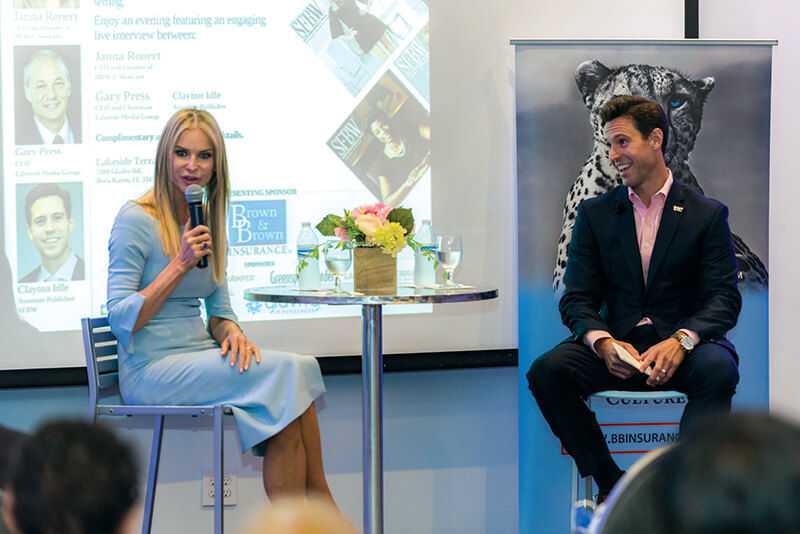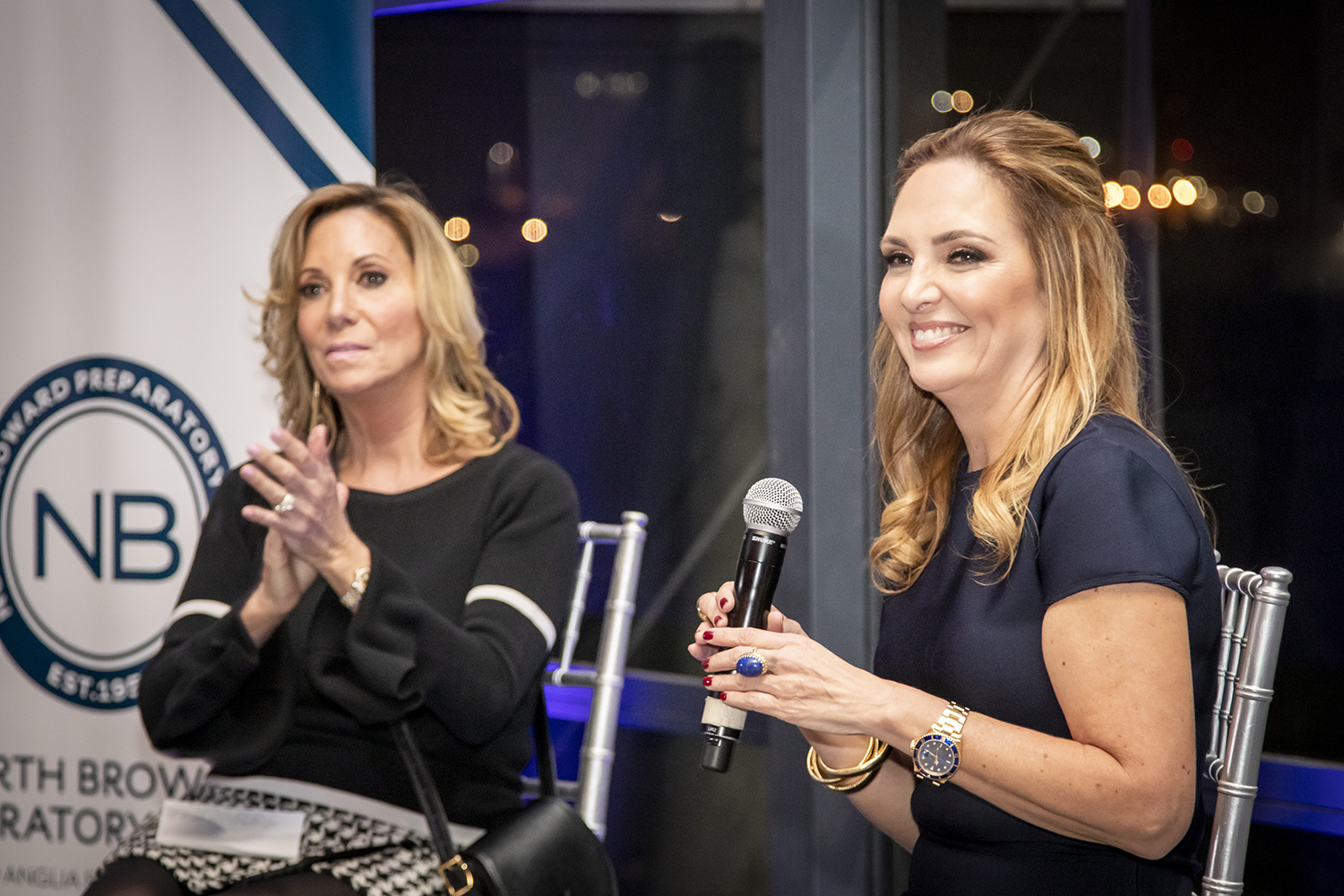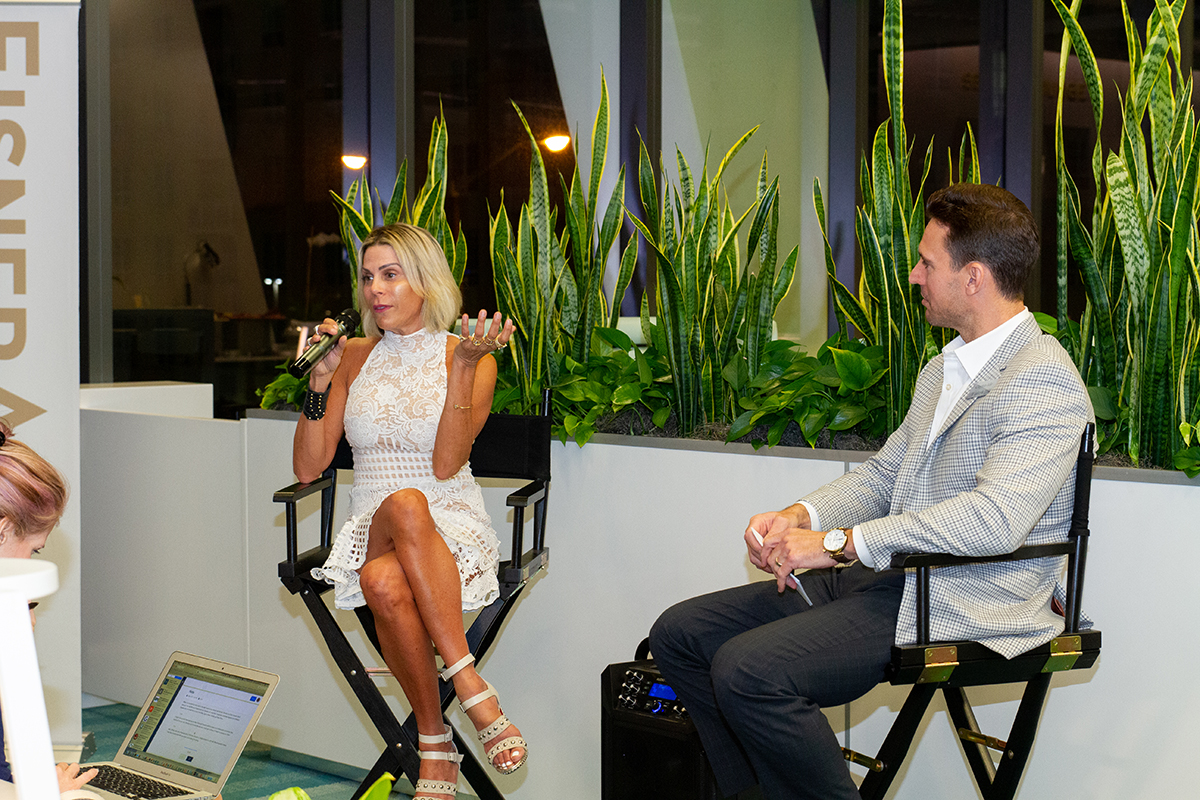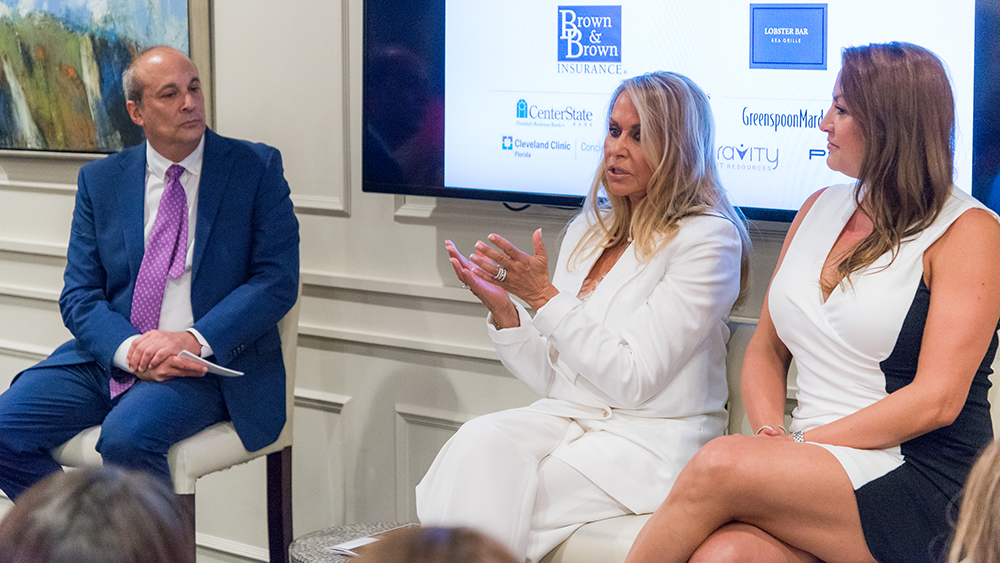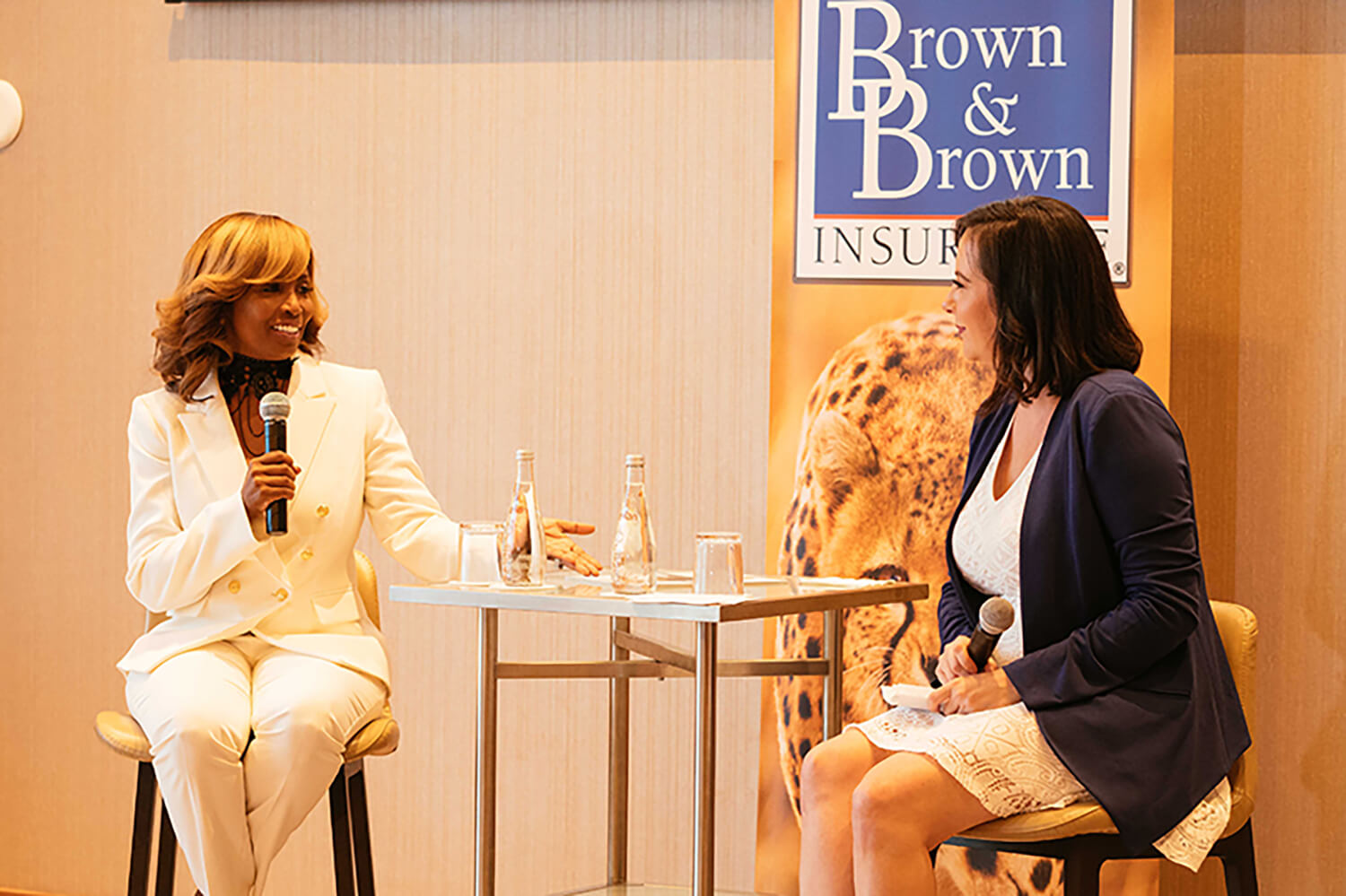Janna Ronert leads global skincare company
Janna Ronert is the CEO and founder of Image Skincare, a professional skincare company she created 15 years ago. She was raised on a farm in Hebron, Nebraska, and received her bachelor’s degree from the University of Nebraska.
She is a Florida-licensed aesthetician as a facial specialist and has extensive clinical expertise, formulating innovative and advanced products at her company, which has a presence in 60 countries. She was named an Ernst & Young Entrepreneur of the Year in 2012, and she received the University of Nebraska’s 2018 Alumni Achievement Award.
She is a member of C200, an organization that recognizes the top 200 female CEOs in the world, and she recently was selected to share business advice on Forbes.com. She supports associations such as Impact Women and the Everglades Foundation (which is devoted to restoring and protecting the Florida ecosystem). She created the Care for Skin foundation with her husband, physician Marc Ronert, Image Skincare’s president and medical director, to provide reconstructive skin surgery for children.
SFBW Associate Publisher Clayton Idle interviewed Ronert at Lakeside Terrace in Boca Raton for the second edition of Women of Influence. The following transcript has been edited for brevity and clarity.
How do you go from being raised on a farm in Nebraska to being a beauty company CEO in South Florida?
Well, I didn’t go right from the farm to here. When I was growing up milking cows, I wouldn’t have been this dolled-up. It was a long journey. I was visiting with a gentleman recently and he asked, “First of all, what did you do in Nebraska?” Well, not much. I think that coming from a farm, one of the things I learned, and it stayed with me for years, is that farmers work really long hours. For my dad, after eight to 10 hours of work, he used to say to us girls—there were four of us—“We are just getting started.” I attribute that to what’s driven me to work hard. My dad always said that he was going to be the best farmer in Nebraska. I think when you are raised with that mentality of being the best, whatever that is, I think that going from a farm to this job sounds like a leap, but it’s really the same principle and the same philosophy.
You started your company 15 years ago out of the trunk of your car. What was that experience like?
I was mixing creams in my Texas apartment, and I had a very old car. And I remember I took out a loan and my dad would not co-sign it for me. My dad told me to get a loan from the bank and said, “If you’re going to be worth anything, you’ll have to do it.” I knocked on one door at a time, and I felt—and feel—that these products are so different and valuable.
What does Image Skincare offer its customers?
It’s a global company that helps the world age later. We save lives through great sunscreens. We help little kids by teaching them about taking care of their skin. Beauty is very cumulative, especially in South Florida, with the sun. You can’t wake up one day and think that, 45 years ago, you would have used sunscreen, if you had known.
One of the things I learned very young, is when people see value, it doesn’t matter. People ask Warren Buffett: “What should I invest in?” And he would say, “No. 1, invest in something you know.” And the second question asked is: When I should invest? And he said, “Today.”
I took that philosophy and carried it with me. If you know it and you see a return, you should keep doing it.
What type of culture do you want for your company, and how do you foster it?
At our company we use the word “skin-spired.” What we try to do from the mailroom to the boardroom is be nice. I know that sounds weird, but if you’re really nice to people you can inspire them—rather, “skin-spire” them. That’s what influences our culture. We believe to work at our company, we want people who are curious about innovation and life. We have a couple hundred people, taking orders and packing boxes, and everybody from the mailroom to the boardroom to the C-suite goes through a full day of image training. We have the accountants, people in the warehouse learn about Image Skincare and they are required to use the products.
That “skin-inspiration,” whether it starts from the top down or bottom up, I think all of that really matters. We are fun, hip and innovative. We promote curiosity and I think that really drives people. Recently, we hosted a town hall-style meeting, and I asked everyone to wear ripped jeans because the theme was to “rip our competition.”
You have to think about how to make work fun. The younger generation loves it and it makes them feel like they are a part the team.











What are some of the trends in the beauty industry that are affecting your company?
Nowadays, social media influencers and beauty bloggers are a really big trend. They can really drive and grow your brand. I was recently in New York and heard Kris Jenner talk about this empire that she’s produced for her girls, who are using social media successfully. When a celebrity gets online and says they love what you do, you can exponentially grow your business.
And I think that, in our industry, as it relates to beauty, you can’t bluff anybody anymore. It just doesn’t work. You must have clinical science behind it and show clinical results. The other change I see is that people care about the environment. That fancy packing and the $5-dollar jar, customers don’t care about it anymore. What’s important is sustainability. Whether it’s your brochures or packaging, people ask me whether you can you recycle it or reuse it. I encourage that less is more.
You have e-commerce on your website, products on Amazon and also sell through skin care professionals. What’s your sales-channel strategy, and what’s been working best?
For 15 years, we only sold direct to doctors, to the spa, to the hotel, and that was good, but our customers said they loved our product and wanted more access to it. So, last fall, we put our own online channel within Image Skincare and we tried to make it a really good customer experience. We have a skin coach that will walk you through what you should do. So, if they bought the products from, say, Dr. Jones in Boca Raton, that doctor would get a high commission of that purchase, which helped keep their customers happy.
The second channel we are in is on Amazon. But we had a lot of diverters on Amazon, so Jeff Bezos brilliantly came up with the beauty site called Amazon Pro. He said to us, “If you offer Image Skincare on Amazon, we promise to get all of the other diverters off and keep the prices to a certain level.” We joined that program in February and it has blown away our expectations.
I don’t think there’s any one channel that works today. I think you have to be in a lot of channels to drive business. And of course, you have to reinvent yourself.
You have aggressive growth plans, including looking to double the company in the next three years. Could you please tell us more about that?
With all those channels I was talking about, I think you have to set the bar high to get to progress. Our goal is to become the No. 1 skin professionals in the world. We are pushing toward a billion-dollar valuation for the company. That’s our plan.
How have you been able to work with your husband to come up with products and improve on them?
Being an aesthetician for a long time, I’ve worked on a lot of faces and know what men and women like for their skin. I met my husband Mark, and he’s the science behind this brand. He’s from Germany and he’s a board-certified plastic reconstructive surgeon with a PhD. We travel around the world to find the best vendors, clients and people to work with. It all boils down to: Who you source and who you do business with is what you become.
How do you figure out pricing in an industry that has so many competitors?
I always have thought backward about pricing. I think that first you need to forget about the money because my dad taught me that if you do good work, the money will come. So I wanted to make sure that the product we put in our bottles, that whoever used it would want to try it again. And I’ve always looked at value. We wanted to be the most value-oriented so people from the mailroom to the boardroom could afford our product.
Our philosophy is to produce a great product with great value, without being greedy. And we’ve had a lot of success that way.♦


